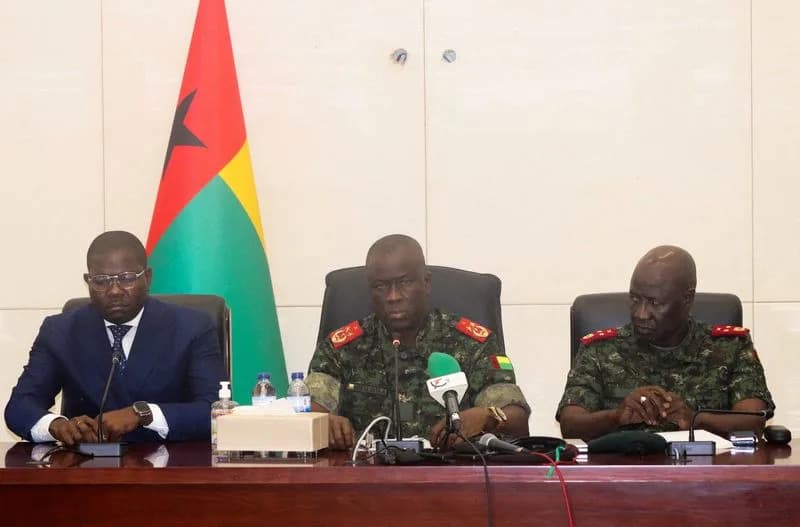Mamady Doumbouya, Guinea’s military leader since a 2021 coup, has officially registered to run in the Dec. 28 presidential election after a new constitution removed bans on junta members contesting office. The revised charter also imposes residency and age requirements that exclude several exiled rivals. The move drew sharp condemnation from opposition groups and comes amid reported crackdowns on protests, opposition figures and the press. Observers say the election’s fairness will be judged against recent restrictions on political freedoms.
Guinea coup leader Mamady Doumbouya formally files to run in Dec. 28 presidential election

Doumbouya submits candidacy amid heated political debate
Mamady Doumbouya, the military commander who seized power in Guinea in 2021, has formally registered to run in the presidential election scheduled for December 28. He arrived at the country’s Supreme Court in an armoured vehicle on Monday, flanked by special forces, and submitted his nomination paperwork before leaving without speaking to reporters.
Outside the courthouse, thousands of supporters who had travelled to the capital, Conakry, by bus chanted slogans including: "Mamady champion, Mamady president, Mamady already elected!"
Constitutional change clears the way
A new constitution, promoted by the junta and approved in a September referendum, removed provisions that previously barred members of the military government from contesting elections. The revised charter also introduces residency and age requirements, stipulating that presidential candidates must live in Guinea and be between 40 and 80 years old.
Those criteria would exclude some potential contenders, notably former President Alpha Condé, who is 87 and currently living abroad, and former Prime Minister Cellou Dalein Diallo, 73, who remains in exile facing corruption charges he denies. Other figures, such as former Prime Minister Lansana Kouyaté and ex-Foreign Minister Hadja Makale Camara, have filed applications and are eligible to stand under the new rules.
Opposition reaction and rights concerns
Living Forces of Guinea (FVG), an opposition alliance, called Doumbouya’s bid "a disastrous turning point in our country’s history," accusing him of breaking promises not to run for the presidency.
Since taking power in September 2021, Doumbouya’s administration has been accused of sharply restricting civil liberties. Authorities have banned public demonstrations, detained or prosecuted opposition figures, and forced some opponents into exile; there are also reports of enforced disappearances. Several media outlets have been suspended and journalists detained, raising concerns about the openness and fairness of the upcoming vote.
Background and stakes
Guinea, a West African nation of roughly 14.5 million people and a former French colony, gained independence in 1958. It holds vast mineral resources, including the world’s largest bauxite reserves and the Simandou iron ore deposit. The December election is being promoted by the junta as a return to constitutional order, but critics warn the constitutional changes and the political environment may limit genuine competition.
Help us improve.




























